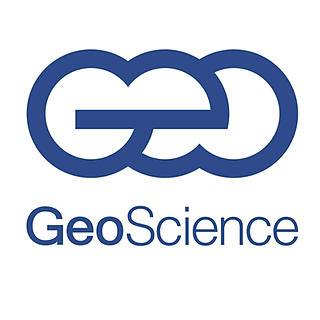GeoScience wins tender for the feasibility of geothermal heat from abandoned Cornish metals mines
- GeoScience Limited
- Jun 7, 2023
- 3 min read
Cornwall Council, the National Trust, LiveWest and Pendeen Community Heritage recently partnered to commission a feasibility study to establish the viability of a mine water heat network from abandoned mines in West Cornwall with funding from the Department of Energy Security & Net Zero (formally BEIS).
GeoScience are pleased to announce that we were successful in our bid to complete the study, along with our consortium partners TownRock Energy, Tomson Consulting, Carrak Consulting, Tony Bennett and the University of Exeter.

The project partners have each pledged to reduce carbon emissions across their respective sites and provide opportunities for decarbonised heat. Cornwall Council declared a Climate Emergency in 2019 and is actively engaged with many projects which encourage carbon savings whilst also tackling inequalities that exist in our society such as fuel poverty. The National Trust aim to become a net zero carbon organisation by 2030, LiveWest are the largest social landlord in the Southwest and are eager to work with government and local authorities to reduce their carbon footprint.
Geothermal heat from mine water
There is growing interest in extracting geothermal heat from mines, both in the UK and internationally. Organisations in the North East of England and Scotland have been exploring the potential of geothermal mine water in abandoned coal mines. Several universities (namely Durham, Glasgow, and Strathclyde) have carried out research. The Coal Authority is exploring the utilisation of this resource across the UK.
In Cornwall there are hundreds of abandoned metal mines that could potentially be utilised in the same way. It is Cornwall Council's goal to assess the feasibility of implementing heat networks around these mine water geothermal resources.
What will the study entail?
The study will collect data from three famous mine sites located within the Penwith Peninsula; Geevor, Levant and Botallack. It will assess the viability of the potential resource in terms of production rate, temperature and geochemistry, and look at the surface infrastructure and engineering options required to connect the resource to the end user.
Work has already been started, with consortium partners collecting data and characterising the accessibility and structural integrity of mineshafts, including running temperature and CCTV surveys. This work has been carried out in partnership with Deep Digital Cornwall, an EU funded project led by the University of Exeter through site visits and research into historical data and published literature.
Victory Shaft at Geevor Mine, the image on the right shows CCTV being lowered down into the shaft.
Although many of the shafts were blocked, either at surface or at “adit level” Victory Shaft at Geevor Tin Mine remained open and accessible to a depth of 420m, enabling logging operations to take place at the end of April.
These operations included: CCTV to determine the condition of the shaft as well as its accessibility at depth for any future development and fluid temperature and electrical conductivity through the water column to assess the potential of the mine water geothermal resource and identify any changes in water properties. The latter aided in selecting representative depths for a water sampler tool to acquire fluid samples for subsequent water chemistry analysis. Such analysis is needed for operational considerations for any downhole equipment as well as for environmental considerations and permitting.
The potential for low-carbon heating from mine water
The full potential of using the heat stored underground both in mines and from the surrounding rocks in Cornwall is yet to be determined but is potentially very significant. By carrying out site-specific studies we can build up a picture of how and where to implement these systems to benefit heat users on the surface and identify where the challenges might lie.
It’s exciting to see interest in this renewable heat resource growing and we hope this study can provide a clear pathway for a promising future in mine water geothermal for Cornwall.

Find out more about the geothermal consultancy services we offer: https://www.geoscience.co.uk/geothermal









This is very interesting news! Using abandoned mines for geothermal heating could be a real breakthrough in renewable energy and reducing carbon footprints. Geothermal energy from such sources allows buildings to be heated efficiently using the natural heat of the earth, while minimizing the negative impact on the environment. In addition, it creates new jobs and opens up opportunities for innovation in the region. Although this is a completely different field than bodybuilding, I find it interesting to note that the principle of a comprehensive approach to resources and efficiency can also be applied to the body. For example, the website https://valhallavitality.com/blog/how-enclomiphene-citrate-is-used-for-bodybuilding explains how Enclomiphene Citrate helps optimize natural processes in the body by stimulating testosterone production and supporting muscle…